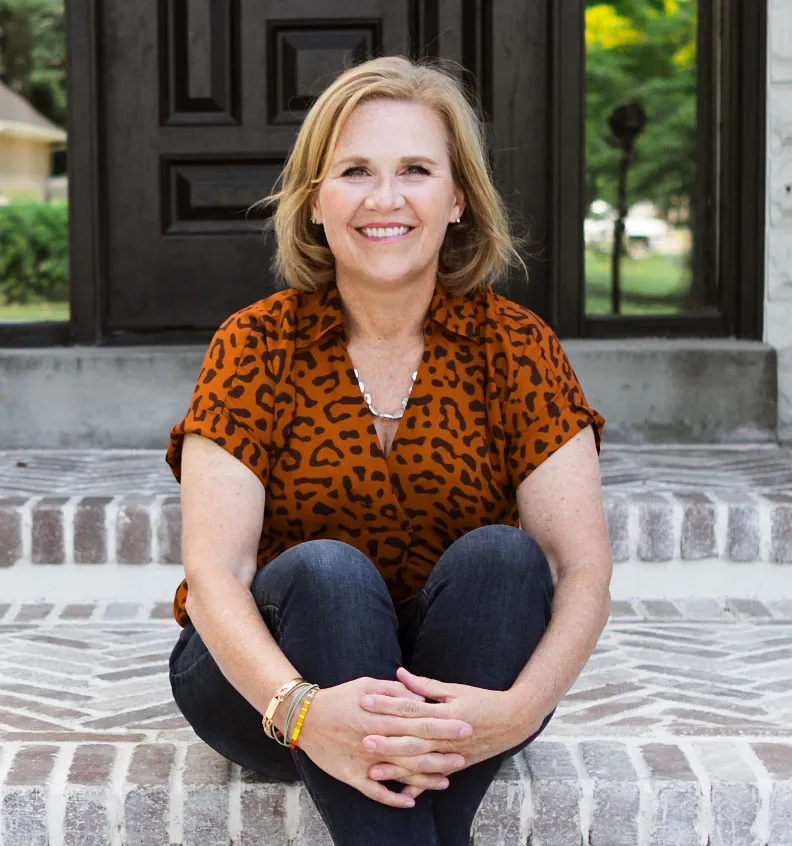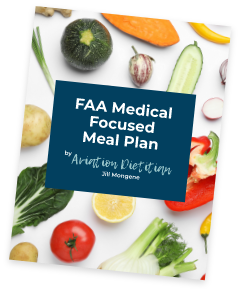Have you tried weight loss strategies but feel stuck? This is a common occurrence within the airline industry. The traditional advice for weight loss is to eat less and move. Not only is there much more to it than that, but that can also be easier said than done if you work in the airline industry.
I recognize that weight is just one measure of overall health, but it is one that many of my clients are concerned with. If this describes you, then this article is for you. Personally, I don’t like to use the terms “overweight” or “obesity.” I do understand that health can excel at all body sizes. The risk comes when health is ignored, which increases the risk of many problems like type 2 diabetes, heart disease, and even some cancers. Through achieving a healthy routine, eating nutritious foods, and being physically active your own health can be improved, and you can reduce your risks of future diseases. When a flight attendant, pilot, or air traffic controller comes to me to start a weight loss journey and asks for weight loss strategies, I always guide the client to improve their health first. Once they have improved their overall health, the weight naturally comes off. I hope you’ll continue reading as I teach you about my philosophy around weight loss and metabolism!
As you know, there is so much more to the old weight loss strategy of “eat less, move more”.
Why Weight Loss is Challenging for Airline Employees
- There is not always access to an abundance of food options, especially on an airline employee’s schedule, which can be any time of day or night.
- Eating isn’t just something we do for sustenance; it’s gratification, a social activity, and sometimes even a reward.
- A good portion of your daily routine consists of being more sedentary, and often you have ZERO control over your own schedule and eating times.
- Reducing calories voluntarily is really, really hard.
- A diet will work in the short term, but fail later on because it is just not sustainable.
- After losing weight, maintaining weight loss is difficult. This is particularly true if you have not focused on changing your behaviors related to emotional eating or food groups you have restricted.
Today, let’s go over some strategies to overcome the challenges of weight loss.
What is metabolism and how can I lose weight and incorporate a healthier journey?
Your weight is based on several factors – some are controllable, and others are not. For example, your genetics, family history, and hormones can impact your weight, but there’s not much that you can do to significantly change those. On the other hand, how much you eat and what you eat, the medications you’re taking, the amount of stress you’re under, and how much sleep and physical activity you get also contribute to weight and are a bit more controllable (albeit not completely controllable).
Metabolism and Weight Loss
There are so many things that your body does at rest:
- Breathing,
- Pumping blood,
- Adjusting hormone levels,
- Maintaining your body temperature, and
- Growing and repairing cells.
The amount of energy (calories) your body uses to perform these essential functions is called your “basal metabolic rate.” Overall, your basal metabolic rate (BMR), or metabolism, accounts for about two-thirds of the calories your body burns each day.
“Metabolism is the process by which your body converts what you eat and drink into energy. During this complex process, calories in food and beverages are combined with oxygen to release the energy your body needs to function,” according to the Mayo Clinic.
Your metabolism is influenced mostly by your body size and composition. This means that people who are bigger and/or have heavier bones and more muscle mass may burn more calories at rest. Because men tend to be bigger and have more muscle, they naturally tend to have a higher metabolism than women. This also goes for younger people. Because bone and muscle mass naturally tend to decrease (and fat mass naturally tends to increase) with age, if you don’t take steps to maintain bone and muscle mass (like taking walks and lifting heavy things), your metabolism likely will decrease which results in increased weight. This is one way that metabolism and weight loss are related.
Certain medical conditions can also affect your metabolism and weight loss. For example, the hormonal conditions of polycystic ovarian syndrome (PCOS), or hypothyroidism (underactive thyroid) can slow your metabolism down. These conditions often come with a range of other symptoms beyond just weight gain. If you suspect that you have an underlying medical condition, don’t hesitate to speak with your doctor or healthcare professional about tests to confirm these diagnoses.
A slow metabolism may be one factor that influences your weight, but it’s not the only one. How your body processes what you eat or drink and how active you are also play roles in your weight.
The process of digesting food burns calories. About 10 percent of the calories in carbohydrates and protein are used to digest them. Plus, the amount of physical activity you do also accounts for some of the calories you burn every day.
While some people may gain or lose weight easier than others, in general, the balance of your “energy equation” counts for your weight. That is, the amount of energy (calories) you take in minus the amount of energy (calories) you burn can determine whether you gain or lose weight.
When I work with flight attendants, pilots and air traffic controllers looking to achieve weight loss goals, I often send them to have their metabolism tested. Metabolism and weight loss often go hand in hand. While I am pretty good at estimating the calories you need to achieve a loss, there may be outside factors that I have not considered in order to set your caloric intake.
Weight loss strategies that are often overlooked
Before you start a weight-loss program, it is best to determine whether your journey will be performed alone or if you’ll hire someone to help. Be sure to research any healthcare professional before you decide to hire them. Many weight-loss coaches are uneducated and non-credentialed individuals who are pushing their own agenda. For instance, intermittent fasting should not be performed while you’re flying due to the potential for a drop in blood sugar and the risk it puts on your crew and passengers. Another example would be a coach recommending the Keto diet for someone that already has high blood pressure and high lipid (cholesterol) panels. This could cause a Federal Aviation Administration Medical Exam failure. Be particularly wary of strategies that appear to be a quick fix and anyone that does not have recognized credentials after their name. Your career and health are WAY too important to partner with a non-professional.
Next, your behaviors and habits have a huge influence on your weight and you are empowered to adjust them as you see fit. It’s recommended that if you want to lose weight, try cutting 250 calories per day from what you eat. You should also add in some walking or weightlifting to burn another 250 calories to help you work towards your weight-loss goals.
My Top 6 Weight Loss Strategies
- Set specific, realistic, forgiving goals.
- Instead of a goal to “lose weight,” try improving your nutrition intake first.
- Take daily pictures of all your meals and snacks. By doing this you will begin to recognize how large or small your portion sizes are and you’ll have a visual to see what may be missing from your daily intake.
- Stick with this new habit for at least two weeks before you start any other new habits.
- Remember, it’s not uncommon to take 6 months to change your behaviors.
- Ditch the “diet” mentality and focus on making lasting improvements for sustainable health.
- Focus on all food groups, even the ones that give you trouble, like carbs. By watching portion sizes you can improve your relationship with foods that trigger you to overeat or binge.
- Restricting food groups causes an “out of sight, not out of mind” experience where you will crave that food group even more.
- After taking pictures of your meals and snacks, if you notice that you’re lacking in colors on your plate, add more fruits and vegetables. Not only will they keep you fuller, but they will also increase your satiety and overall health.
- Try eating a different way and see what works for you.
- Enjoy your food more and listen for fullness cues that subtly signal when you’re getting satisfied and it’s time to stop eating. Set a goal to NOT eat distracted. Put the phone down, turn off the computer or TV and focus on the meal in front of you.
- By eating more mindfully you will enjoy what you’re eating while you’re eating it. Pay attention to your food’s smell, taste, and texture as you’re eating it.
- If you have a habit of snacking in front of the TV or computer screen, make sure it is portioned out. Don’t eat from packages. Put that snack in a cute bowl or cup so you know exactly how much of it you’re eating.
- You don’t have to do exercise to be more physically active (but you can).
- Boost your activity; move for at least 30 minutes per day (even three 10 minute sessions can help); more movement can bring greater benefits.
- Aerobic activity (walking) is the most efficient way to burn calories.
- Weight training (using weights or bodyweight) builds your muscles which increases your metabolic rate.
- Don’t forget you don’t have to do “exercise” to be physically active. You can take the stairs more often, park further away, walk a bit faster, or even do housework or gardening—they all count toward your physical activity.
- Fidgeting counts, too. Your non-exercise activity thermogenesis (NEAT), like shaking a leg, tapping a foot, or even twirling a pen, also burns some calories.
- Remember that any physical activity is better for your health (and weight loss goals) than none.
5. Reward your successes.
According to the National Institutes of Health, “frequent, small rewards, earned for meeting smaller goals, are more effective than bigger rewards that require a long, difficult effort.”
- Each time you reach a goal, however small, reward your success with a non-food activity or item.
- For example, you may want to buy yourself that book, movie, music, or game that you’ve wanted for a while. You could even re-read, re-watch, or re-listen to an old favorite.
- Perhaps you can put a small amount of money away to save up for a larger reward.
- Rewards don’t have to be monetary. You can take some time for yourself like taking a bath, doing your nails, buying a new piece of clothing, or enjoying a craft or hobby you love.
- Maybe you’d prefer some time to watch comedy skits or funny animal videos online.
6. Persevere
- Losing weight is hard and most people have to keep trying before they find a way that works for them.
- Every day is a new day. If you go off track, get back on track and try again.
- Don’t give up. A study published in September 2020 found that trying to lose weight over and over again (also known as “weight cycling”) can significantly reduce your risk of dying. According to the National Institutes of Health, “repeatedly losing and regaining weight was better than giving up after one or two attempts or, worse still, never trying to lose weight at all.”
The Bottom Line
While weight is but one measure of health, it is a big concern for many people. Losing weight is not easy, even with weight loss strategies. Your metabolism is influenced by many different factors—some you can’t control (e.g., your genes) and others you can (e.g., what and how you eat).
The fundamentals of weight loss include enjoying healthier, nutritious foods more often and being more physically active, but there are so many approaches and weight loss strategies that help you make this happen for you. The way you approach eating, the way you set your goals and reward yourself, and the way you persevere are all totally customizable so you can try and see what works for you.
For a nutritious approach to metabolism, weight and your health, consider signing up for a 30 minute consultation with me – the first Aviation Dietitian. I am a licensed and credentialed professional who has spent the last 17 years helping others in your field. Make this year the year to no longer struggle. I have helped hundreds of others like you lose weight, improve health and feel good in their bodies!








